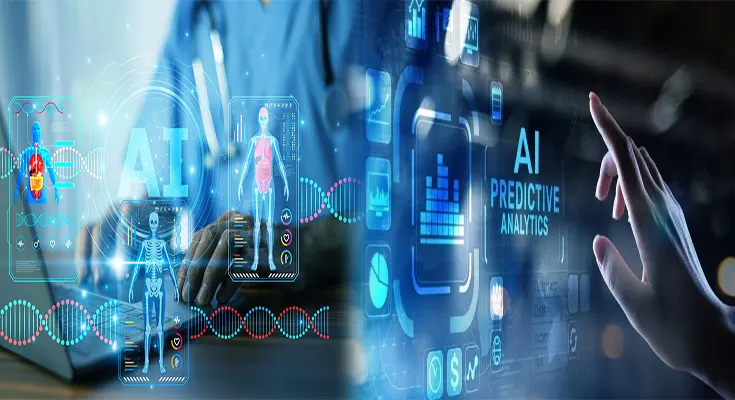Artificial intelligence (AI) has emerged as a transformative technology in the healthcare industry, enabling providers to harness vast amounts of data to improve patient outcomes, enhance decision-making, and optimize operational efficiency. One key application of AI in healthcare is predictive analytics, which uses advanced algorithms to analyze data and forecast future trends, helping healthcare providers make proactive decisions and interventions. Looking ahead, several future trends in AI for predictive analytics are poised to shape the future of healthcare delivery and patient care.
One of the major future trends in AI for predictive analytics in healthcare is the increasing use of machine learning algorithms to develop more accurate and personalized predictive models. Machine learning algorithms have the capability to analyze complex datasets, identify patterns, and predict outcomes with a higher degree of precision than traditional statistical methods. By leveraging machine learning for predictive analytics, healthcare providers can better anticipate disease progression, identify at-risk patients, and tailor individualized treatment plans for improved clinical outcomes.
Another future trend in AI for predictive analytics in healthcare is the integration of diverse data sources to generate more comprehensive insights. With the proliferation of connected devices, wearables, electronic health records, and genomic data, healthcare organizations have access to a wealth of data that can be leveraged for predictive analytics. By integrating and analyzing data from multiple sources, AI can provide a holistic view of patient health, enabling providers to detect early warning signs, identify potential complications, and intervene proactively to prevent adverse events.
Furthermore, the adoption of explainable AI models is anticipated to be a critical trend in predictive analytics for healthcare. As AI algorithms become more sophisticated and complex, there is a growing need for transparency and interpretability to ensure trust and accountability in decision-making processes. Explainable AI models offer insights into how predictions are generated, enabling healthcare providers to understand the rationale behind recommendations and make informed decisions based on actionable insights.
Moreover, the future of AI in predictive analytics in healthcare is likely to see advancements in real-time monitoring and intervention capabilities. By leveraging AI-powered predictive analytics in real time, healthcare providers can continuously monitor patient data, detect anomalies, and trigger alerts for timely interventions. Real-time predictive analytics can help prevent medical emergencies, optimize resource allocation, and improve the overall quality of care delivered to patients.
The future of artificial intelligence for predictive analytics in healthcare holds tremendous promise for revolutionizing patient care, clinical decision-making, and healthcare operations. With advancements in machine learning algorithms, data integration, explainable AI models, and real-time monitoring capabilities, AI-powered predictive analytics are poised to drive innovation, improve outcomes, and enhance the efficiency of healthcare delivery. By embracing these future trends in AI for predictive analytics, healthcare providers can unlock the full potential of data-driven insights and transform the way healthcare is delivered and experienced in the years to come.





